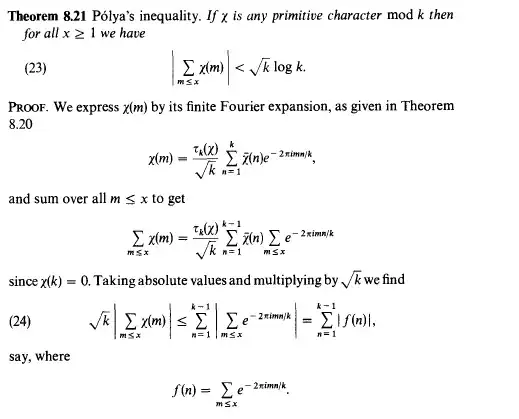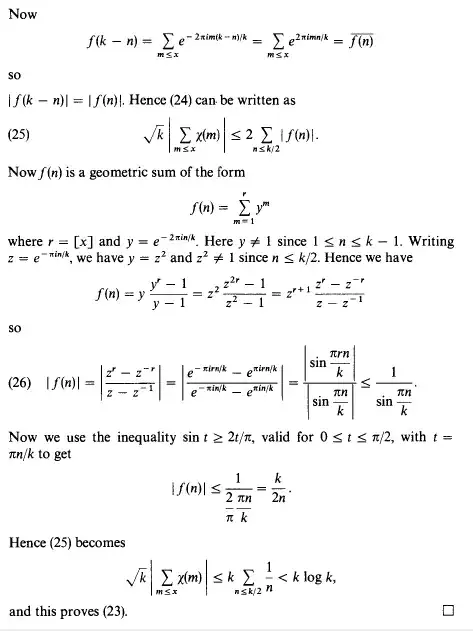Let me combine all the ideas I find to prove that $\forall k \ge 1. H_m < \log(2*m+1)$. As noted by @mihaild this is sufficient for the proof of the theorem. We can proceed by induction.
For $k = 1$ , we have $1 < \log(3) = 1.09\ldots$ which holds.
For $k > 1$, we assume $H_m < \log(2*m+1)$ and would like to show $H_{m+1} < \log(2*(m+1)+1)$.
We have $H_{m+1} = H_m + \frac 1 {m+1} < \log(2m+1) + ?$. To fill this placeholder we note that $\log(2m+1) + \log(x) = \log(2*(m+1)+1)$ when $x = \frac{2m+3}{2m+1}$ and in that case we would just need to prove that $\frac 1 {m+1} < \log(1+\frac 2 {2m+1})$. But this is true since the function $f(x) = (x+1) \log(1+ \frac 2 {2x+1}) - 1 > 0$ in $]\frac{-1} 2,+\infty[$. To see this is for the cases we are interested is useful to remember that $e$ is the unique number for which $\Big(1+\frac 1 {x}\Big)^{x} < e < \Big(1+ \frac 1 {x}\Big)^{x+1}$ for all $x > 0$ (see wikipedia).
Application on Polya's inequality
In fact, what is needed to conclude the proof of Polya's inequality is:
For $k \ge 2$ we have
If $k$ is odd then $H_{\frac k 2} < \log(k)$.
If $k$ is even then $H_{\frac k 2 - 1} + \frac 1 k < \log(k)$
For 1. the proof follows easily from the above.
For 2. one notes $h(\frac k 2 - 1) < \log(2*(\frac k 2 - 1)+1) = \log(k-1)$ by the above. Then $\log(k-1) + \frac 1 k < \log(k)$ since the function $x*\log(1+\frac 1 {x-1}) - 1$ is again positive in $[1,+\infty[$. The same inequality as before is used to establish this.

